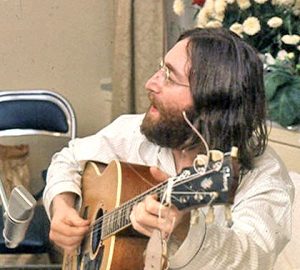Author Claims That John Lennon Suffered From Bulimia
 The author of the newly released book “Backstage Pass VIP” claims that John Lennon suffered from undiagnosed bulimia and food fetishes.
The author of the newly released book “Backstage Pass VIP” claims that John Lennon suffered from undiagnosed bulimia and food fetishes.
Debra Sharon Davis, who wrote the book, looks into the private lives of several iconic rock stars from the 60’s and 70’s. The marketing and communications strategist who specializes in advising clients on pop culture provides some unique insight into some of the less well-known details of the rock stars’ lives.
She notes that John Lennon’s weight fluctuated considerably during his career. In 1980 when John Lennon was shot outside his apartment in New York City, his weight had dropped and he was visibly thin.
Debra Sharon Davis goes on to describe Lennon’s obsession with food. She states that he fantasized about certain foods and kept snacks hidden in various locations around his home. It is said that he loved bowls of rice krispies topped with ice cream.
Davis claims that John Lennon loved to eat, but hated feeling full afterwards. He was always hungry and would binge eat. He would then make himself throw up.
The author’s claims are reinforced by an interview she had with singer Harry Nilsson who had also noticed that John Lennon had some serious food issues. Nilsson shared an exchange he had with Lennon in which the former Beatle admits to being hungry all the time and overeating. At the time, Lennon linked his problems with food to the side effects of fame and fortune, telling Nilsson about “powerful men (who) had ravenous appetites and wanted to swallow the world whole”.
Davis notes that during John Lennon’s career, little was known about bulimia, and so the serious eating disorder often went undiagnosed. Complicating matters, the drug fuelled culture surrounding the music industry at that time provided the perfect foil for self-destructive behaviors such as binging and purging. Although those close to Lennon were aware he had a problem, the serious nature of his alleged eating disorder went unrecognized and untreated.
Source: The Telegraph
Photo: Roy Kerwood. Wikimedia Commons. No endorsement implied.
 Eating Disorder Self Test. Take the EAT-26 self test to see if you might have eating disorder symptoms that might require professional evaluation. All answers are confidential.
Eating Disorder Self Test. Take the EAT-26 self test to see if you might have eating disorder symptoms that might require professional evaluation. All answers are confidential.